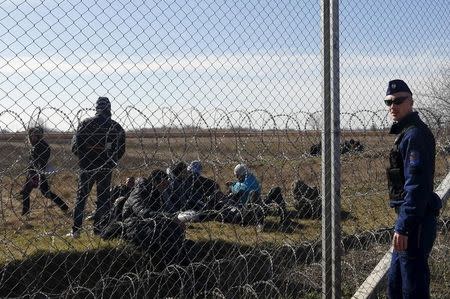Hungary raps EU, sees migrant quota referendum in 150 days at earliest

By Gergely Szakacs BUDAPEST (Reuters) - Hungary's justice minister accused the EU on Friday of overstepping its mandate by seeking to impose migrant resettlement quotas on member states and said Budapest could hold its planned referendum on the issue in 150 days at the earliest. Hungary has been at odds with the European Commission and some fellow EU countries over how to handle the influx of large numbers of migrants into the bloc. Prime Minister Viktor Orban proposed the referendum on Wednesday to see whether Hungarians accepted the quotas, which his right-wing government opposes. "Our view is that the EU has no authority to order the mandatory settlement of people in any given country. The EU has no such jurisdiction," Justice Minister Laszlo Trocsanyi told a news conference. Hungary believes the EU proposal represents a "creeping curtailment" of power, he said, adding that the referendum could be held at the earliest in 150 days' time and at the latest within 250 days, subject to a legal process. To be valid, the vote will require at least half of Hungary's eligible voters to cast their ballot. Trocsanyi said Hungary, which has clashed with EU authorities in the past over laws affecting the courts, the media and the central bank, was interested in a strong European Union consisting of strong, sovereign nation states. He defended Hungary's planned vote on the grounds that Ireland, the Netherlands and Britain have held or will hold national referendums on EU-related matters. But the EU Commission warned on Thursday that Hungary's referendum plan may clash with an agreed EU-wide strategy to handle the refugee crisis. The United Nations refugee agency, which has criticised Hungary's handling of the migrant crisis in the past, expressed concern about Orban's referendum move. "The announcement is a blow to efforts in implementing a common European approach to deal with the refugee crisis, based on cooperation, solidarity and responsibility sharing," it said in a statement. "Asking the public to turn its back on the victims of extremism, war and persecution contradicts decisions jointly agreed upon by European Member States in 2015 and furthermore goes against the very values Europe was founded upon." (Reporting by Gergely Szakacs; Editing by Gareth Jones)

